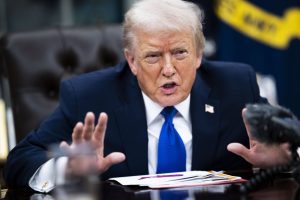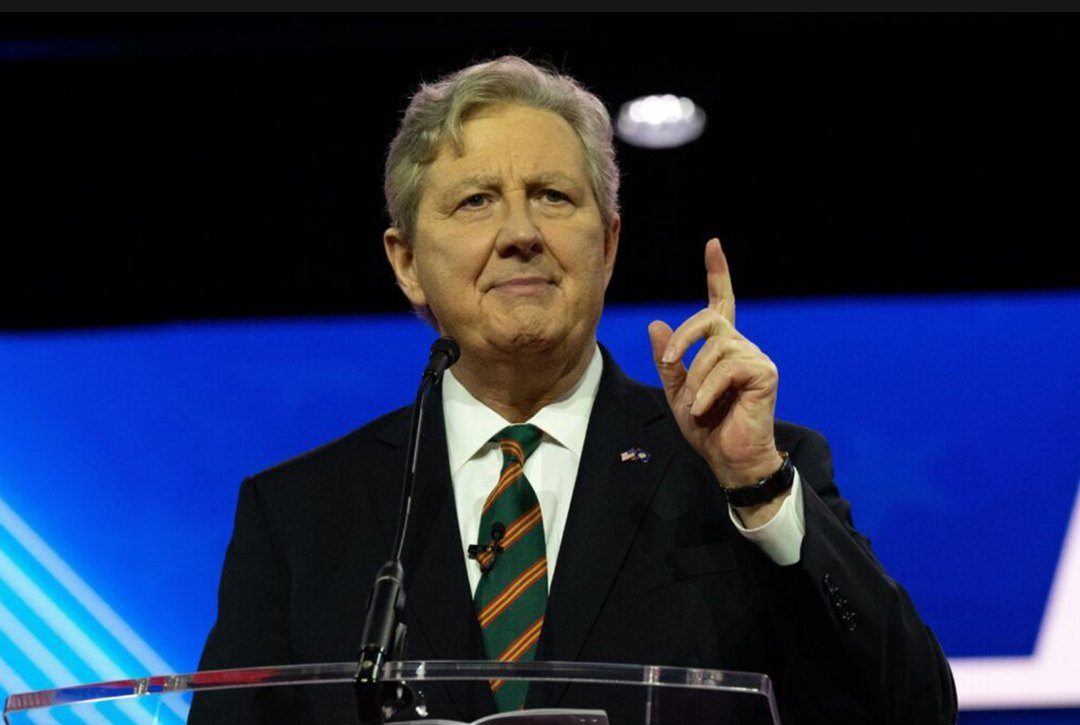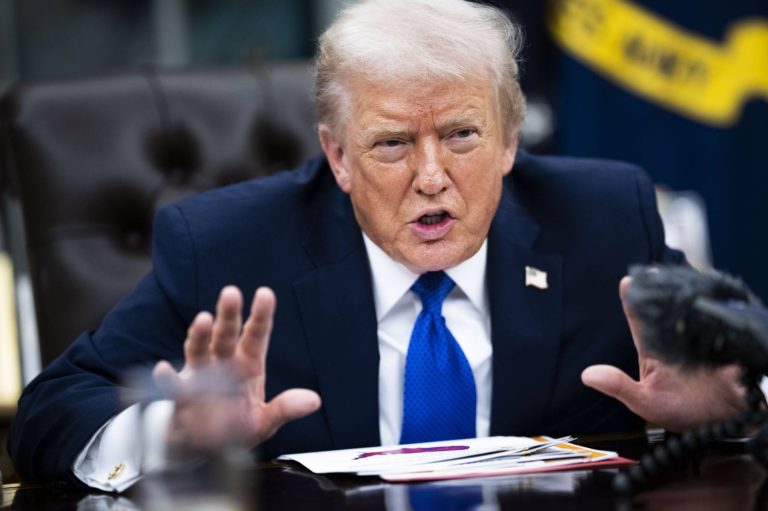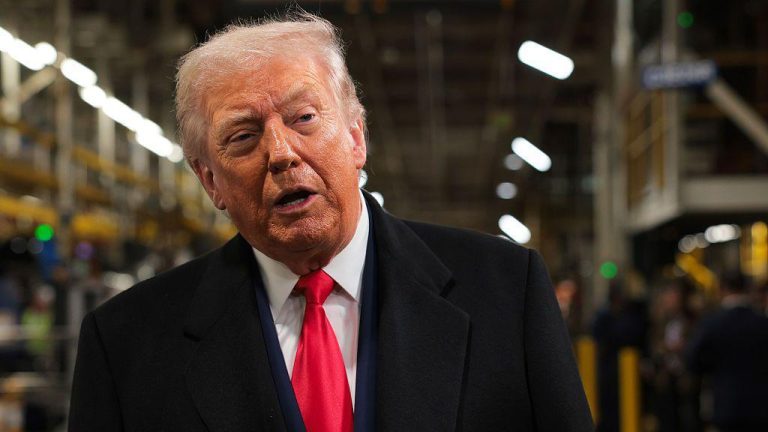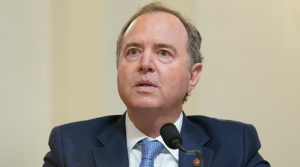NOTE: VIDEO AT THE END OF ARTICLE
In a fiery week for American media and politics, National Public Radio (NPR) found itself at the center of controversy—again. NPR CEO Katherine Maher appeared on CNN’s News Central on Thursday to defend the organization’s editorial integrity, asserting that NPR is a “non-partisan organization” committed to serving all Americans.
But her comments couldn’t have come at a more politically charged moment.
Just hours earlier, the U.S. Senate passed President Donald Trump’s $9 billion rescissions package, which included a dramatic cut to federal funding for public broadcasting, potentially threatening the financial support streams that have long benefited NPR and PBS.
Katherine Maher’s Comments Ignite Debate
During her CNN appearance, Maher attempted to address longstanding allegations of bias:
“We are a non-partisan organization, and we want to serve—and are required to serve—the entirety of the American public.”
But her past social media activity quickly resurfaced. Critics pointed to her past tweets—calling Donald Trump a “racist” in 2018 and a “deranged racist sociopath” in 2020—as proof of ideological slant.
In another post, she declared that the U.S. is “addicted to white supremacy.” These comments, though made prior to her tenure at NPR, are fueling suspicions that Maher’s leadership style could further erode public trust in the network.
The GOP Responds: “Proof of Bias”
Senator John Kennedy (R-LA) did not miss the opportunity to pounce. From the Senate floor, he cited a litany of NPR’s editorial decisions that conservatives argue reveal deep-rooted political bias.
Among them:
-
In 2020, NPR refused to cover the Hunter Biden laptop story, dismissing it as a “pure distraction” just weeks before the presidential election.
-
In 2018, NPR published a report that falsely accused Donald Trump Jr. of lying to the Senate about the Trump Tower Moscow project. The error was later retracted.
-
During the pandemic, the network discredited the lab leak theory and halted live coverage of Trump’s coronavirus briefings in Seattle—decisions that critics saw as politically motivated.
NPR has also drawn criticism for promoting stories deemed by some to be “ideologically loaded,” such as reports on the supposed racism of country music or birds, and questioning whether men hold any biological advantage in women’s sports—a claim Senator Kennedy directly rebuked.
The Uri Berliner Bombshell
Adding fuel to the fire, NPR’s internal culture has recently been called out by its own former staff.
In April 2024, Uri Berliner, a longtime NPR editor, published a widely circulated essay in The Free Press claiming that the network had strayed from its journalistic mission. He alleged that NPR prioritized identity-based narratives and had an editorial culture that lacked “viewpoint diversity.”
“There’s near-unanimous agreement internally on coverage direction,” Berliner wrote, “especially on race, gender, and politics.”
His essay has become a rallying cry for critics who argue that the public broadcaster no longer reflects the diversity of thought within the American public.
Trump’s Rescissions Package: A Blow to NPR and PBS
At the center of all this is the Trump administration’s $9 billion budget-cutting plan, which includes the defunding of a nonprofit that has long distributed federal appropriations to NPR and PBS.
White House Press Secretary Karoline Leavitt backed the move, bluntly calling NPR and PBS:
“Propaganda voices for the political left.”
The rescissions package doesn’t stop at media. It also slashes foreign aid, trims non-military discretionary spending, and retools longstanding budget items the Trump team calls “wasteful” or “duplicative.”
While Maher claims the cuts pose a “risk to public safety,” conservatives argue the opposite: that taxpayers shouldn’t be funding outlets they see as partisan institutions.
What Happens Next?
The battle over NPR’s funding is far from over. Supporters of public broadcasting argue that federal dollars are essential for maintaining local stations, educational programming, and independent journalism, especially in rural communities.
Opponents say it’s time to end taxpayer subsidies for organizations that show apparent bias.
This moment could be a turning point for public media in America. With Donald Trump seeking a second term, and political polarization only intensifying, NPR and other institutions that claim neutrality may find themselves under even deeper scrutiny.
Final Thoughts
The controversy surrounding NPR is not just about funding—it’s about credibility. In an age where Americans are more divided than ever over where to get their news, institutions like NPR are facing the ultimate test: can they truly be trusted to serve the entire public?
Or has the age of “public” media quietly become the age of partisan media with a taxpayer price tag?

Sarah Mitchell is a bestselling novelist recognized for her insightful and emotionally resonant stories that explore the complexities of human relationships. Originally from Denver, Colorado, Sarah grew up in a family of teachers who nurtured her curiosity and love for storytelling. She studied psychology at Stanford University, where she became fascinated by the intricacies of human behavior—an interest that would later shape her writing career. Sarah’s novels are praised for their nuanced characters, intricate plots, and ability to capture the subtle tensions that define love, friendship, and family ties. Her breakthrough novel, The Spaces Between Us, became an instant bestseller, lauded for its honest portrayal of strained family relationships and the fragile bonds that hold people together. Since then, she has published several works that continue to captivate audiences around the world. Outside of her writing career, Sarah is passionate about mental health advocacy and often partners with organizations to promote awareness and support for those struggling with emotional well-being. Her personal life is quieter—she enjoys hiking in the Colorado mountains, practicing yoga, and spending time with close friends. With each new book, Sarah Mitchell cements her reputation as a writer who illuminates the beauty and struggles of human connection.

